
A holistic, chronological approach illustrating how context and culture influence a child’s development across domains and time
Child Development
Context, Culture, and Cascades
Catherine S. Tamis-LeMonda
About the Book
Child Development: Context, Culture, and Cascades seeks to convey the wonder and awe of child development. Catherine S. Tamis-LeMonda aims to inspire students to understand the process of change and to think about change through the eyes of a developmental scientist.
Context and Culture:
Children develop in multiple interrelated contexts—all of which are subject to important cultural influences that infuse all aspects of development. In addition, the biological context is integral to the developmental processes. This theme, that development is the product of multiple interacting contexts, is systematically integrated into every chapter.
Child Development: Context, Culture, and Cascades includes many examples from an array of cultural experiences, and strikes a balance between unique cultural practices and universal developmental processes.
Developmental Cascades:
The theme of developmental cascades is woven through a dedicated section in each chapter that illustrates inter-connections between domains of development, embracing the idea of the whole child.
Request an Evaluation Copy
Research Methods:
Child Development: Context, Cultures, and Cascades includes a dedicated chapter on foundations, theories, and methods of research. It also provides a chapter-specific overview of the methods that researchers use to study different areas of development. The goal is to arm students with a thorough understanding of how to do research and then apply that knowledge. By learning and doing, students will come to appreciate how to tackle critical development questions with an eye toward age-appropriate measures and methods.
Language Development:
Child Development: Context, Culture, and Cascades includes a dedicated chapter—Chapter Six—that highlights the rapid changes to language during infancy and toddlerhood, equipping readers with the foundational knowledge that supports a deeper appreciation of language topics.
About the Author

Catherine S. Tamis-LeMonda is Professor of Developmental Psychology, in the Department of Applied Psychology at the Steinhardt School of Culture, Education, and Human Development at New York University, where she directs the Play & Language Lab. She is a Fellow of the American Psychological Society and has served in various capacities (past and current) such as President of the International Congress of Infant Studies; member of the Governing Council of the Society for Research on Child Development; associate editor of Infancy and Journal of Experimental Psychology: General; reviewer on editorial boards of several journals and panels of federal and foundation funding agencies.
Tamis-LeMonda’s research focuses on infant and child language, communication, object play, literacy, and motor skill, and the roles of language input, home experiences, parenting, and culture in infant learning and development across domains. Her research has been funded by the National Science Foundation, National Institute of Child Health and Human Development, National Institute of Mental Health, Administration for Children, Youth and Families, the LEGO Foundation, Ford Foundation, and the Robinhood Foundation. She has over 200 publications in peer-reviewed journals and books, and co-edited the volumes Child Psychology: A Handbook of Contemporary Issues, 1st, 2nd, 3rd Editions (Psychology Press, 1999, 2006, 2016), Handbook of Father Involvement: Multidisciplinary Perspectives, (Psychology Press, 2002; 2013), The Development of Social Cognition and Communication (Psychology Press, 2005), and the Handbook of Infant Development (Cambridge University Press, 2020). Her husband Richard, children Brittany, Christopher, and Michael; grandchildren Lila and Zoe; and dog Lucy are a constant source of joy and continual reminder to always find the time to take a break, go for a walk, host a holiday, do some cooking, and relish time with family.
Look Inside
Brief Contents
PART 1: FOUNDATIONS
Chapter 1: Goals, Theories, and Methods
Chapter 2: Heredity, Environment, and the Brain
Chapter 3: Prenatal and Postnatal Health and Physical Development
PART 2: INFANCY AND TODDLERHOOD
Chapter 4: Perceptual and Motor Development in Infancy and Toddlerhood
Chapter 5: Cognitive Development in Infancy and Toddlerhood
Chapter 6: Language Development in Infancy and Toddlerhood
Chapter 7: Emotional and Social Development in Infancy and Toddlerhood
PART 3: EARLY CHILDHOOD
Chapter 8: Physical Development and Health in Early Childhood
Chapter 9: Cognitive and Language Development in Early Childhood
Chapter 10: Emotional and Social Development in Early Childhood
PART 4: MIDDLE CHILDHOOD
Chapter 11: Physical Development and Health in Middle Childhood
Chapter 12: Cognitive Development in Middle Childhood
Chapter 13: Emotional and Social Development in Middle Childhood
PART 5: ADOLESCENCE
Chapter 14: Physical Development and Health in Adolescence
Chapter 15: Cognitive Development in Adolescence
Chapter 16: Emotional and Social Development in Adolescence
Multimedia
CONCEPTS IN ACTION VIDEOS: These short videos highlight important concepts in child development, bringing methods and concepts to life.
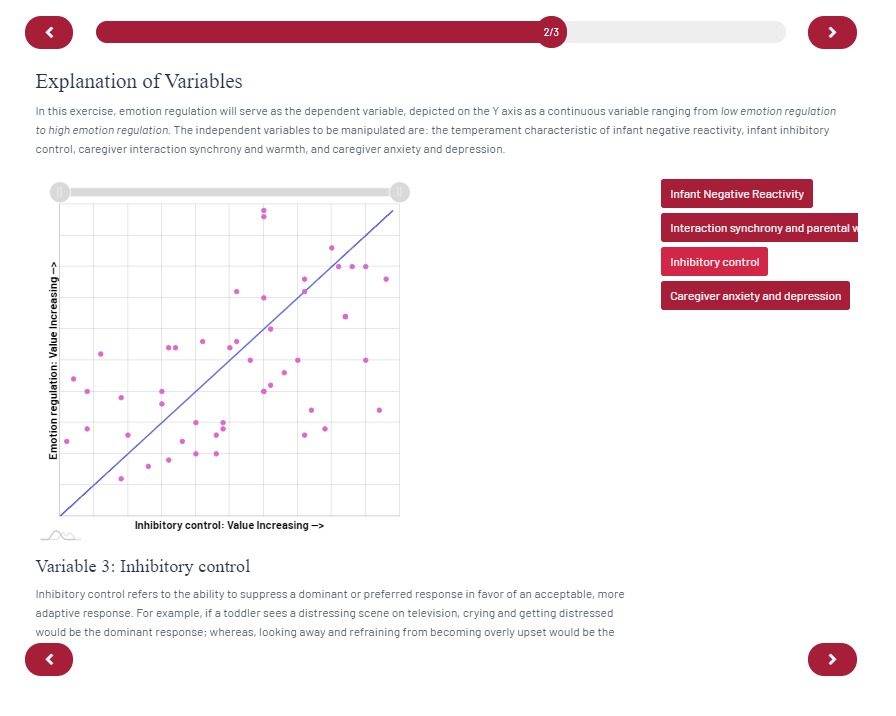
DATA IN ACTION: These interactive graphs enable students to manipulate independent and dependent variables relevant to chapter topics to see associations change in real time.
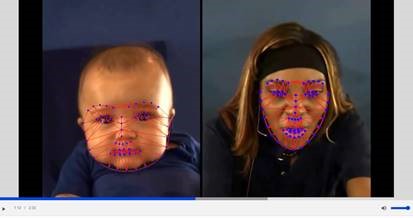
RESEARCH IN ACTION VIDEOS: These short videos explore classic and current research in child development.
AUTHOR CONTEXT AND CULTURE VIDEOS: These short videos, featuring the author, complement selected context and culture sections in chapters to emphasize key points.
AUTHOR CASCADES VIDEOS: These short videos, featuring the author, complement end-of-chapter sections on Developmental Cascades, emphasizing key points related to these important concepts.
Learning Tools
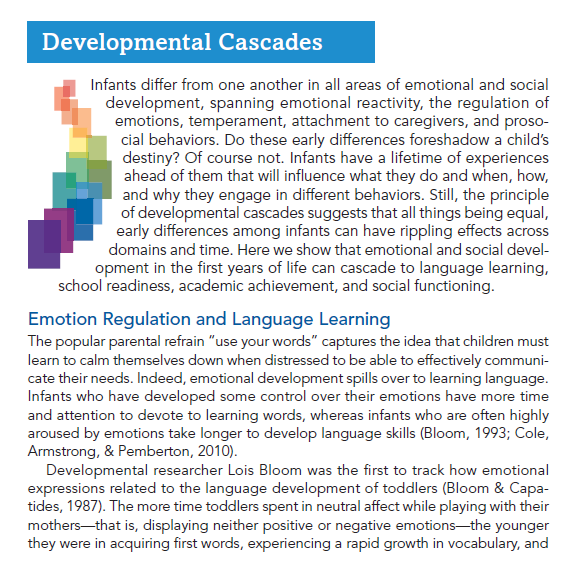
Developmental Cascades: Captures the idea that changes in one domain of development can reverberate across other domains and time
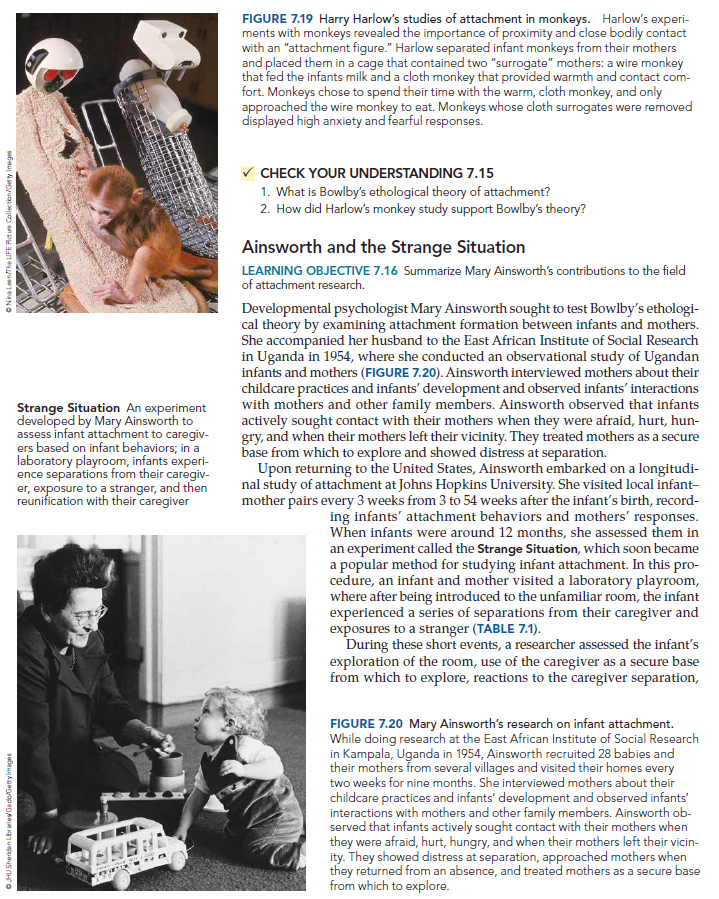
CHECK YOUR UNDERSTANDING QUESTIONS: Test students’ understanding of content related to learning objective sections
LEARNING OBJECTIVES: Connect to the major subheadings of the chapter and cue students to what they should be able to know and/or do after reading
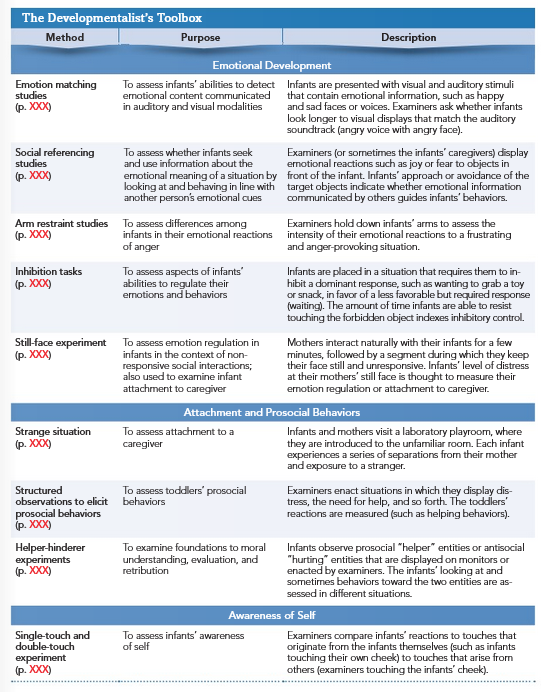
THE DEVELOPMENTALIST’S TOOLBOX: Recaps the research methods discussed in the chapter, briefly describing the method and its purpose, to reinforce students’ research understanding
BULLETED CHAPTER SUMMARY: Summarizes the contents of main sections
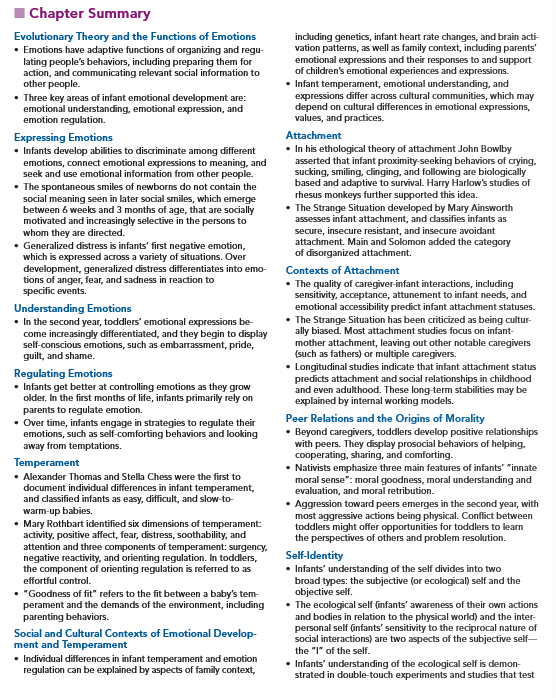
THINKING LIKE A DEVELOPMENTALIST QUESTIONS: Present students with hypothetical situations to engage them in the application of chapter information
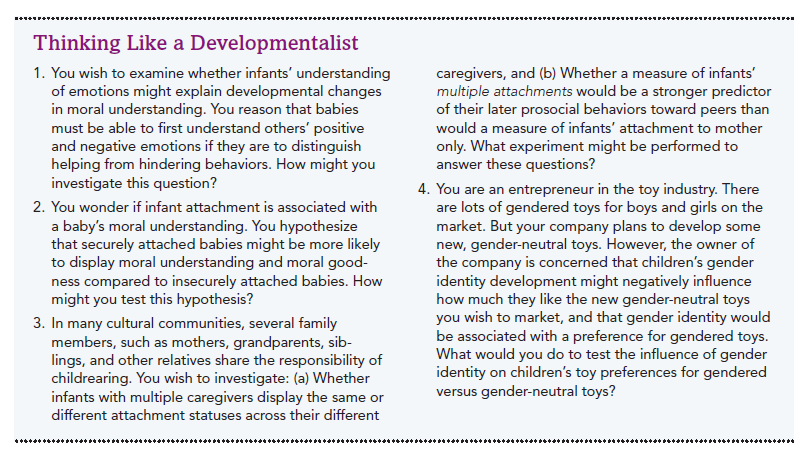
Videos and Webinars
Courseware
Child Development: Context, Culture, and Cascades is available powered by Oxford Insight. Oxford Insight delivers the text content within data-driven courseware designed to optimize student success. Developed with a foundation of learning science, Oxford Insight enables instructors to deliver a personalized and engaging learning experience. Adaptability paired with real-time actional data helps instructors ensure that each student is supported along their learning path.
Book a Demo
Benefits of Oxford Insight include:
- A dynamically personalized learning experience for each student
- Improved reading retention by using “chunked” content paired with formative assessment activities
- Actionable real-time data on student performance displayed on the dashboard
- Students can visualize key concepts and research with five different video types. Click here for a full list of videos.
Instructor Resources
Everything instructors need to prepare their course lectures can be found in our extensive instructor resources program, available to qualified adopters on the Oxford Learning Link, including:
- Suggested answers to “Thinking Like a Developmentalist” essay questions
- Suggested answers to “Check your Understanding” questions
- Instructors Manual
- Test bank
- Lecture PowerPoints
- Figure PowerPoints
- Concepts in Action Real-Time Class Participation Activities
Access the Instructor Resources, available on Oxford Learning Link
Praise for Child Development
This book provides a new approach for students who will begin to think in developmental terms and apply concepts with real life examples across each domain. Rather than just providing terminologies and descriptions of theories and concepts, this text provides a more immersive experience.”
–Timothy Oblad, Texas A&M University-Kingsville
I've always tried to focus on context and culture (and cascades) in my course, but the textbooks haven't always gone in that direction. This textbook is intentionally focused on these concepts. It consistently weaves everything together, providing various examples and real-world application to parallel.”
–April Masarik, Boise State University
With a lot of examples from real life stories, movie, and media in general, the book grabs students’ attention and deepens their understanding of human development!”
–Yoshie Sano, Washington State University
This is a comprehensive text filled with considerations to culture and community. Research is introduced in a meaningful way, not just through initial chapters, but woven through the entire book, emphasizing the importance of perspective-taking as well as learning how some topics or terms may be interpreted differently.”
–Sonia A. Yoshizawa, East Tennessee State University
Copyright © Oxford University Press 2026


